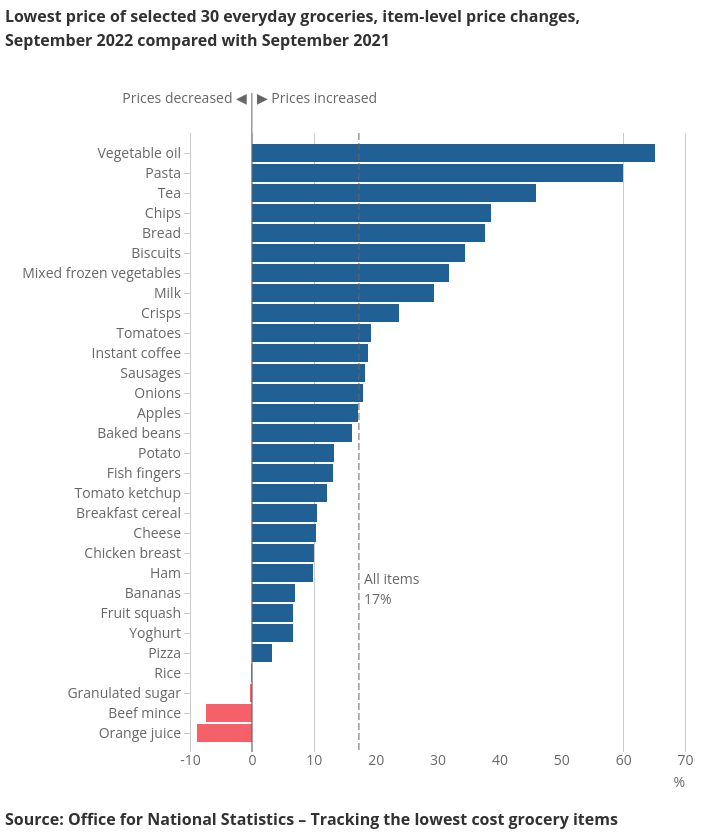UK Grocery Bills Surge by £275 Annually Amid Rising Food Prices

As grocery price inflation soars to 5.2% in July 2025, UK households face an impending increase of approximately £275 in their annual grocery expenditures, prompting a significant shift in consumer behavior towards simpler meals. According to data released by Worldpanel, a leading research firm, shoppers are increasingly opting for supermarket own-label products as a cost-saving measure amidst rising food prices, which have reached their highest level since January 2024.
The Worldpanel report revealed that nearly two-thirds of UK households express substantial concern over grocery costs, reflecting a broader trend of financial anxiety among consumers. Fraser McKevitt, the head of retail and consumer insight at Worldpanel, emphasized that the inflationary pressures are influencing not only purchasing choices but also meal preparation habits. "Today, almost seven in ten dinner plates include fewer than six components," he noted, highlighting a marked shift towards simpler, more economical meals.
This trend surfaces against a backdrop of escalating inflation rates in the UK, where the consumer price index unexpectedly rose to 3.6% in June, driven largely by increases in food and fuel prices, as reported by the Office for National Statistics (ONS). Food price inflation has been particularly pronounced, with staples such as cakes, meat, milk, eggs, and cheddar cheese contributing to the uptick.
Supermarkets are grappling with multiple challenges, including heightened wage costs and potential alterations to business rates that could further squeeze profit margins. Simon Roberts, the CEO of Sainsbury's, warned that these financial pressures could compel large retailers to withdraw from high street locations, negatively impacting local economies. He stated, "The changes being proposed will further increase the negative impact of business rates and won’t stimulate the growth or investment into our high streets and jobs that we all want to see."
Helen Dickinson, the Chief Executive of the British Retail Consortium, echoed these concerns, suggesting that external factors such as poor harvests are exacerbating the situation. She remarked, "Retailers are doing everything they can to shield customers from these mounting pressures, but there is only so much they can absorb before costs start feeding through to prices."
In response to changing consumer behavior, Lidl, the German discount retailer, has seen its market share increase to a record 8.3%, attracting over 500,000 new customers in July alone. Meanwhile, Ocado remains the fastest-growing grocer, with an 11.7% increase in sales over the 12 weeks ending July 14, although its market share remains relatively small at 2%. Tesco leads the market with a 28.3% share, while Marks & Spencer has reported a 6.5% increase in grocery spending following a prior cyber-attack.
As the UK grapples with rising grocery costs and changing consumer habits, the implications for the retail sector are profound. Analysts predict a continued shift towards budget-friendly products and simpler meal preparations, a trend that could reshape grocery shopping dynamics in the foreseeable future. The current economic climate raises questions about sustainability in the retail sector and its ability to adapt to consumer demands amidst ongoing inflationary pressures. Looking ahead, the resilience of retailers in navigating these challenges will be critical in determining their long-term viability and the overall health of the UK grocery market.
Advertisement
Tags
Advertisement





